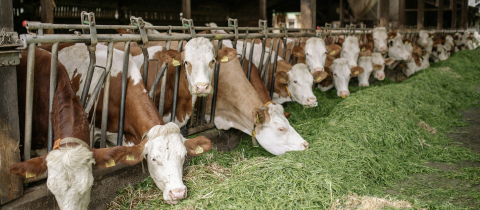Elie Metchnikoff drank sour milk every day. He believed that the lactic acid bacteria found in fermented foods like yogurt, especially the Lactobacillus bulgaricus strain, helped to promote longevity by preventing potentially disease-causing bacteria from proliferating in the intestines. He attributed the long life of Bulgarian peasants to their daily consumption of yogurt. Metchnikoff was not some sort of self-proclaimed health guru, he was a respected Russian scientist who shared the 1908 Nobel Prize in Medicine and Physiology with Paul Ehrlich for their pioneering work on immunology. Metchnikoff had discovered that certain white blood cells, subsequently named phagocytes, were able to engulf and destroy bacteria.
Although the supposed longevity of Bulgarian peasants was never properly documented, Metchnikoff’s ideas about ingesting certain bacteria to improve gut health are turning out to be correct. There are more than 1000 species of bacteria that inhabit the human intestine and their numbers are in the trillions. An imbalance in this “microbiome” has been associated with various diseases, including colorectal cancer, and it is known that eating habits can induce changes in the composition of gut bacteria. Advances in “metagenomics” now make the identification of specific bacteria in a bulk sample possible without the need to isolate and culture individual species. Metagenomics refers to the isolation of a mixture of DNA that comes from all the organisms in a sample and analyzing it for sequences that identify specific bacteria.
This technique has revealed that specific bacteria are found in greater numbers in the tumours and fecal matter of colorectal cancer patients. In other words, colorectal cancer has a “microbial signature.” The bacteria that have been identified, such as Bacteroides fragilis, Fusobecterium nucleatum, and some species of E. coli release toxins that can damage the host’s DNA and are therefore candidates for causing the cancer. The question is whether anything can be done to minimize the presence of these bacteria and reduce the risk of colorectal cancer, the third most common cancer in the world.
We get a clue from a paper recently published in the journal “Gastroenterology.” Harvard researchers subjected the stool of 519 healthy men and women to metagenomic analysis to look for the microbial signature of colorectal cancer. Then they examined dietary questionnaires these subjects had filled out and found that the signature was more likely to be present when the diet was high in industrially processed food and low in unprocessed fiber-rich food. The next question to be answered was whether people who followed such a diet were more likely to develop colorectal cancer.
That was answered by scrutinizing data collected from large nationwide studies including the Health Professionals Follow-up Study and the Nurses Health Study in which thousands filled out questionnaires over the years about their health status and the specifics of the diet they were consuming. As was to be expected, a number of the participants in the studies became victims of colorectal cancer.
Now for the kicker! The cancer patients were more likely to have consumed a diet that was similar to the one that the researchers had found was associated with the microbial signature of colorectal cancer in the subjects who had donated stool samples.
What is our takeaway? There is nothing new about linking highly processed food to colorectal cancer. Other studies have shown that, particularly pointing an accusing finger at processed meats and refined grains. But this new study suggests a mechanism for how diet can cause colorectal cancer. Somehow processed foods and low fiber foods encourage the growth of the bacteria that churn out toxins that can damage the host’s DNA. That suggests the possibility of analyzing stool samples for the bacterial signature of potential colorectal cancer. Finding it will hopefully convince people that a change in dietary habits is warranted. That change would be to cut down on processed foods and increase the consumption of high fiber foods, and perhaps look to beneficial bacteria, or “probiotics” as we now call them, to crowd out the microbes linked to colorectal cancer. Metchnikoff didn’t live as long as the Bulgarian peasants, but he didn’t become a cancer victim either. He died at seventy-one from heart failure. Maybe he should have stuck to low-fat yogurt.







